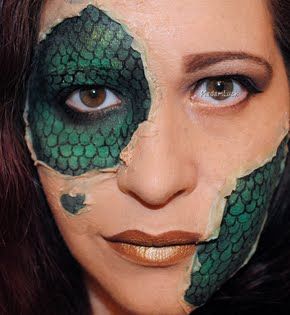Zen of an Illness
The virus hit without warning. Fever, razor blades in the throat, severe coughing spasms, muscular aches and pains, chills, and total exhaustion. Walking fifty feet to the mailbox was like running a marathon requiring hours of rest. The doctor confirmed my immune system was compromised from a similar virus I'd contracted in India. He prescribed rest while monitoring it for pneumonia or bronchitis.
spasms, muscular aches and pains, chills, and total exhaustion. Walking fifty feet to the mailbox was like running a marathon requiring hours of rest. The doctor confirmed my immune system was compromised from a similar virus I'd contracted in India. He prescribed rest while monitoring it for pneumonia or bronchitis.
Because I was so ill I tried to figure out metaphysically, why the virus had returned. Louise Hay's book, "Heal Your Body" said it was "the desire to retreat" and "too much going on at once." Both assessments were a spot on diagnosis. Too much had been going on in my life since January of 2012 and I desperately desired time off or to go away on a retreat. I'd made plans to go on retreat in the summer, but my body decided it wanted a retreat now. It reactivated the virus from India and exiled me from my normal daily routine for four weeks.
I've never sat around idle all day, but there was nothing else I could do. The energy required to do anything was non-existent. I couldn't do my daily meditation practices because I couldn't breathe and the coughing was constant. In fact, all I could do was sleep, stare out the window, sleep, watch TV, and sleep some more. It turned out to be a preordained retreat in its own way.
required to do anything was non-existent. I couldn't do my daily meditation practices because I couldn't breathe and the coughing was constant. In fact, all I could do was sleep, stare out the window, sleep, watch TV, and sleep some more. It turned out to be a preordained retreat in its own way.
My life before the virus was active, scheduled, and focused. After morning meditation, I researched or wrote spiritual articles, prepared seminars or retreats and planned the monthly moon meditations. There was never time to do the ordinary or spontaneous things that most people do in their lives. But with the virus controlling my days, I was now a passive and unfocused hostage. There was nothing to think about, nothing to do, nowhere to go, no energy to read, no calls to make and no one to see. My world was now focused on coughing, aches and pains, and endless exhaustion.
Molting on the sofa, I channel-surfed for hours. I discovered a TV show about How Things Are Made. Apparently there's a global audience interested in how toothpicks, chewing gum, flutes, crayons, and frozen pancakes are made. I wasn't planning to renovate anything but watched marathon shows on renovating houses, yards, kitchens and bathrooms. With my previous life immersed in daily spiritual pursuits, mindlessly watching TV was a radical behavioral change. But something else was occurring.
kitchens and bathrooms. With my previous life immersed in daily spiritual pursuits, mindlessly watching TV was a radical behavioral change. But something else was occurring.
I started to intently observe what I was doing. Zen teaches us to live fully in the moment making each instant a peak experience. If that can be done clarity would result. When fits of coughing erupted, I was consumed by the act of coughing. When robotic arms created toothpicks from specialized woods, I was awed by the magnificence of splintering timber rendered small. As old beams were torn down in renovated houses, I mourned the destruction of character and charm. When rain fell against my window, I felt the skies weeping. When a motionless white egret caught a gecko in a flash of its extended neck, I understood living and dying.
In the fog of fever and coughing I realized I was out of balance. While working non-stop I had not allowed myself any time to molt, observe life, or do the things I wanted to do. Six months ago I wrote an article called "Now What?" The article talked of the transitory nature of life amid the dramas we create. It told of things continually rising and falling in and out of existence. It suggested that we just live our lives in the present and to the best of our abilities. But along the way I forgot what I'd written. It took a Zen virus to remind me.
 I looked up molting in the dictionary. It means to cast off or shed skin, feathers and the like that will be replaced with new growth. The Zen virus had become my guide. It taught me to take time for trivial pursuits. It gave me permission to do nothing if I wanted to. It showed me how to be quietly observant. It held no judgments. It allowed me to be present moment by moment. And it reminded me that it would lurk in the cells of my body in case I forgot the lessons.
I looked up molting in the dictionary. It means to cast off or shed skin, feathers and the like that will be replaced with new growth. The Zen virus had become my guide. It taught me to take time for trivial pursuits. It gave me permission to do nothing if I wanted to. It showed me how to be quietly observant. It held no judgments. It allowed me to be present moment by moment. And it reminded me that it would lurk in the cells of my body in case I forgot the lessons.
After enduring the virus for four weeks the Zen of this illness had become the most blessed of retreats!
 spasms, muscular aches and pains, chills, and total exhaustion. Walking fifty feet to the mailbox was like running a marathon requiring hours of rest. The doctor confirmed my immune system was compromised from a similar virus I'd contracted in India. He prescribed rest while monitoring it for pneumonia or bronchitis.
spasms, muscular aches and pains, chills, and total exhaustion. Walking fifty feet to the mailbox was like running a marathon requiring hours of rest. The doctor confirmed my immune system was compromised from a similar virus I'd contracted in India. He prescribed rest while monitoring it for pneumonia or bronchitis.Because I was so ill I tried to figure out metaphysically, why the virus had returned. Louise Hay's book, "Heal Your Body" said it was "the desire to retreat" and "too much going on at once." Both assessments were a spot on diagnosis. Too much had been going on in my life since January of 2012 and I desperately desired time off or to go away on a retreat. I'd made plans to go on retreat in the summer, but my body decided it wanted a retreat now. It reactivated the virus from India and exiled me from my normal daily routine for four weeks.
I've never sat around idle all day, but there was nothing else I could do. The energy
 required to do anything was non-existent. I couldn't do my daily meditation practices because I couldn't breathe and the coughing was constant. In fact, all I could do was sleep, stare out the window, sleep, watch TV, and sleep some more. It turned out to be a preordained retreat in its own way.
required to do anything was non-existent. I couldn't do my daily meditation practices because I couldn't breathe and the coughing was constant. In fact, all I could do was sleep, stare out the window, sleep, watch TV, and sleep some more. It turned out to be a preordained retreat in its own way.My life before the virus was active, scheduled, and focused. After morning meditation, I researched or wrote spiritual articles, prepared seminars or retreats and planned the monthly moon meditations. There was never time to do the ordinary or spontaneous things that most people do in their lives. But with the virus controlling my days, I was now a passive and unfocused hostage. There was nothing to think about, nothing to do, nowhere to go, no energy to read, no calls to make and no one to see. My world was now focused on coughing, aches and pains, and endless exhaustion.
Molting on the sofa, I channel-surfed for hours. I discovered a TV show about How Things Are Made. Apparently there's a global audience interested in how toothpicks, chewing gum, flutes, crayons, and frozen pancakes are made. I wasn't planning to renovate anything but watched marathon shows on renovating houses, yards,
 kitchens and bathrooms. With my previous life immersed in daily spiritual pursuits, mindlessly watching TV was a radical behavioral change. But something else was occurring.
kitchens and bathrooms. With my previous life immersed in daily spiritual pursuits, mindlessly watching TV was a radical behavioral change. But something else was occurring.I started to intently observe what I was doing. Zen teaches us to live fully in the moment making each instant a peak experience. If that can be done clarity would result. When fits of coughing erupted, I was consumed by the act of coughing. When robotic arms created toothpicks from specialized woods, I was awed by the magnificence of splintering timber rendered small. As old beams were torn down in renovated houses, I mourned the destruction of character and charm. When rain fell against my window, I felt the skies weeping. When a motionless white egret caught a gecko in a flash of its extended neck, I understood living and dying.
In the fog of fever and coughing I realized I was out of balance. While working non-stop I had not allowed myself any time to molt, observe life, or do the things I wanted to do. Six months ago I wrote an article called "Now What?" The article talked of the transitory nature of life amid the dramas we create. It told of things continually rising and falling in and out of existence. It suggested that we just live our lives in the present and to the best of our abilities. But along the way I forgot what I'd written. It took a Zen virus to remind me.
 I looked up molting in the dictionary. It means to cast off or shed skin, feathers and the like that will be replaced with new growth. The Zen virus had become my guide. It taught me to take time for trivial pursuits. It gave me permission to do nothing if I wanted to. It showed me how to be quietly observant. It held no judgments. It allowed me to be present moment by moment. And it reminded me that it would lurk in the cells of my body in case I forgot the lessons.
I looked up molting in the dictionary. It means to cast off or shed skin, feathers and the like that will be replaced with new growth. The Zen virus had become my guide. It taught me to take time for trivial pursuits. It gave me permission to do nothing if I wanted to. It showed me how to be quietly observant. It held no judgments. It allowed me to be present moment by moment. And it reminded me that it would lurk in the cells of my body in case I forgot the lessons. After enduring the virus for four weeks the Zen of this illness had become the most blessed of retreats!
Jo Mooy - July 2013

No comments:
Post a Comment